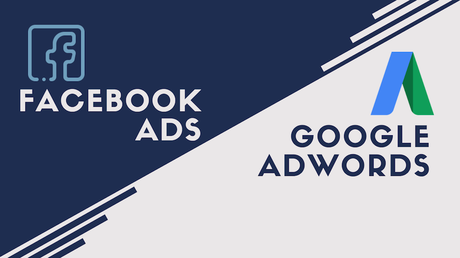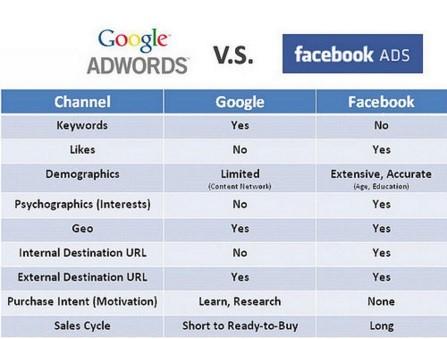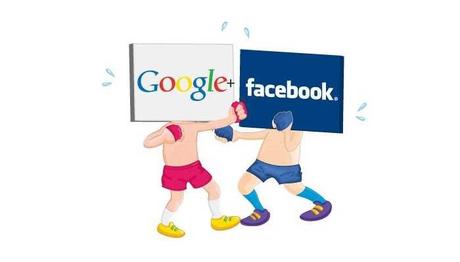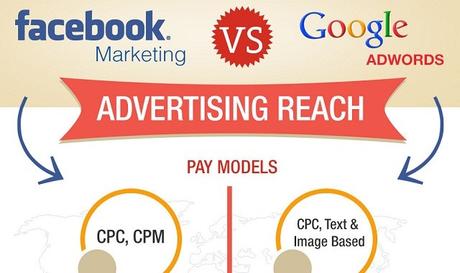Online appearance of banner ads gained popularity in 1994 introduced by Wired Magazine’s former online offshoot HotWired, a digital publication, sorting ways to generate revenue to pay its writers. The company planned and allocated small portions of its website to sell it to the advertisers, similar to ad spaces on a print magazine, naming the space as “banner ads”
With the advancing age, advertisers diverted their focus towards “paid search” and “pay-per-click (PPC)” in 1999-2000 giving a new dimension to this rising trend. With the steady popularity of search engines, the online advertising companies focused more on creating ads that were more targeted towards users choice based on search criteria in accordance to their geographical location, gender and most importantly search interest.
At this point, Google introduced Adwords in the year 2000, originally under a pay-for-placement ad model. Google aimed to create a search experience that will be sponsored and generate revenue without compromising the quality and relevancy of search results.
Advertisers sought out an efficient and non intrusive way to integrate ad content, when social media platforms picked up streams in mid 2006. Spending most of their time on social networks, the youngsters were unswayed by banner ads, thus, the marketers wanted an effective plan to reach the younger generation. To achieve this target in 2006 Facebook started working on increasing the young company profitability. They moved on to the target ads gradually after displaying some sponsored links and small ads. With the passing years, Google and Facebook, being the two mainstream rivalries, advanced their skills and expertise in the field. Now in 2017 Facebook Ads and Google Adwords are the two most widely used platforms for advertisement.
How to choose the most appropriate for your business between Facebook ads and google AdWords?
Accounting for 85%, of each dollar spent on online ads, an evident duopoly is commanded by Google and Facebook in the online advertising sector, making both of them the first platforms marketers rush to for advertising. But several factors are to be considered before deciding which one suit your brand’s advertising needs and deserves your precious time and money.
1. The aim of your business

Every business has a driving purpose that is portrait through its advertisement. It can be driving engagement, raising awareness, increasing sales, or acquiring leads. Facebook Ads, with their pre-existing campaign objective options, are arguably the more versatile advertising platform of the two. They are especially effective in driving engagement, improving brand recognition, brand awareness and promoting events.
If the business aims to achieve brand awareness, event promotion and driving engagement, then Facebook ads is undoubtedly a better option as these fields are its proficiency. On the other hand, Google Adwords is a more valuable option when acquiring leads and increasing sales is a requisite. The reason being, Facebook user are only surfing for entertainment and to spend the free amount of time they have got, rarely does one searches social networking sites with the intent of buying a particular product, hence, limiting Facebook ads toward brand awareness and to let people know the services/product a business has to offer.
Google AdWords is much more reliable for the purpose of focusing on sale increment as it is much more focused on relevant keywords, geographical location and various factors based on user preference. For example, if someone types in Google search engine “advertising companies in Dubai”, Google will narrow down the searches on the basis of these relevant keywords by online displaying the names of certain advertising agencies in Dubai.

2. Brand recognition
The above discussion leads us to another question “Is your brand recognized?” There is no point in choosing Google Adwords if the brand is not in knowledge of people and the company is aiming to only increase sales as people searching on Google Adwords will get plenty of other recognized brands with similar product/services as yours. Similarly, choosing Facebook Ads for a well recognized business is also pointless as the company should be using Google Adwords for increasing sales and taking leads.
3. Targeted population

Facebook Ads holds tremendous strength in targeting almost highly specific population with the courtesy of massive user base of the social media sites. Of course, there are more Google users comparatively but Facebook holds more detailed information about its users demographically, like age, marital status, geographical location, qualifications, gender, interests and so on, making it easy for business advertisers with their target. While Google displays adverts to anyone who uses relevant keywords, not limiting its audience.
4. Budget
According to the statistics, there are 2.295 billion internet users around the globe, out of which 1.82 billion are Facebook users and estimated page views of around one trillion per month. Facebook Ads manages to reach an estimated total population 43.8% of all the internet users. On the contrary, Google Adwords manages to capture 90% of all internet users with around 180 billion Google searches per month reaching over 2.6 billion Google searches every month. It is crucial to consider the budget when planning to opt of the platform, keeping two things in consideration: Cost-per-click (CPC) and Cost per Acquisition (CPA). Facebook more or less always have a lower CPC relative to AdWords — $0.45 against $0.35 – $5.

A depth look for analysis is as follows. Facebook has cost per thousand impression (CPM) $0.80 – $1.00 per 1000, click through rate (CTR) 0.027% (for dating ads) – 0.919% (for telecommunication ads), conversion rate 1 – 2% and average cost per conversion (Facebook likes) $0.34 (food and beverage industry) - $1.57 (telecommunication industry).
However, a detailed analysis for Google Adwords stats that Google has cost per thousand impression (CPM) $2.75, click through rate (CTR) 2%, conversion rate 2.35%, average conversion rate (ecommerce: 1.84%, B2B: 2.23%, finance: 5.01%) and average cost per conversion varies as Adwords CPA bidding allows you to set as required.
Therefore, a careful monitoring of these statistics is essential while deciding which platform works best for your business.
It is evident that no doubt both of these platforms are incredibly dominant in their own unique way. The choice to make is entirely up to the individual requirements of the business. On the other hand, it would not be a bad idea if the businesses consider using both Google Adwords and Facebook Ads in a complementary way rather than viewing them as rivalries.

